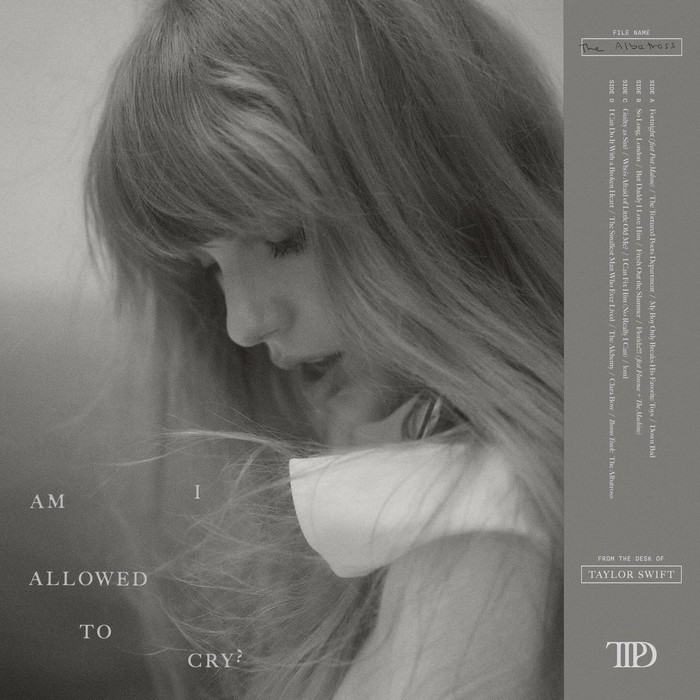Here we go again: the newest Taylor Swift album is out.
It was 1 a.m. CST on April 19, and we were studying for our AP Macroeconomics test after we had finally finished listening to Taylor Swift’s newest album, “The Tortured Poets Department.” Or so we thought. We had barely finished processing the album when we got a notification that Swift had released a second part to the album with 15 new songs.
Our honest, most immediate reaction was us saying to ourselves, “You have to be kidding me.”
Initially, we had high hopes for Taylor Swift’s “The Tortured Poets Department” to be an even more poetic and refined version of her Grammy-winning album, “folklore.” Instead, it ended up being another synth-pop album that breeds quantity over quality.
Much of the lack of quality was derived from unnecessarily verbose songwriting. We know better than most that Swift has a beautiful ability to be raw and vulnerable in her music. This album is not proof of that. There are a few exceptions with songs like “Black Dog,” “The Smallest Man Who Ever Lived” and “Clara Bow.” For the most part, a lot of the songs felt like she was trying too hard to be poetic. We longed for the effortless profundity she was known for in “folklore” and “evermore.”
At times it felt like she wrote the entire album looking through a thesaurus, not so casually dropping phrases like “sanctimonious performing soliloquies,” which were heavy-hitting words that did not land a single blow on our hearts.

One of our favorite things about Taylor Swift is her unique ability to successfully experiment with several different music genres throughout her discography, however she once again stuck to the synth-pop lull she has been on since “Midnights.” This album seemed like an opportunity to branch out into different styles of production, but it seems like Swift has stuck to the same monotonous melodies that we’ve grown tired of.
Swift’s music has always been known for its relatability. But on “The Tortured Poets Department,” she delves deeply into her “tortured poetry” that she ends up crafting songs laden with so many personal references that they lack universality. We definitely did not relate to wanting to live in the 1830s; that one was all you, Taylor!
However, we did relate to one song in particular in the midst of this largely woeful record, and that was “I Can Do It With A Broken Heart.” We giggled at its jutting contrast of shameful admissions in its lyrics and its sparkly sound composition. Swift wrote about her experience of going through heartbreak while being on tour. The song is nicely summarized in this lyric: “All the pieces of me shattered as the crowd was screaming: ‘MORE!’” This song was a much-needed refreshing break from the barrage of repetitive sad songs.
To be fair though, the blame for her abundance in music isn’t all on her. The Swiftie community is often starved for content, and will wait all of 30 seconds before demanding Swift for more music. And seeing as how she gave us a whopping 31 tracks, it seems like Swift doesn’t know how to say no.
We tried to make the argument that we initially had similar reactions to folklore and evermore on the first listens, which are now some of our favorite albums of all time. However, instead of the album growing on us, with every listen we started to grow more tired of the songs, almost solely because of the sheer amount of songs. Apart from “The Alchemy,” we wouldn’t say that any of these songs are inherently bad when they’re heard individually. But when you mash them together into a huge album, each of them lose their unique charm and sound too similar to even stand out.
They all basically tell the same story. It’s funny how we can categorize an entire 31-song album into 4 stories:
- She was the only one putting in work in her relationship with actor Joe Alwyn.
- Her relationship with The 1975’s lead singer, Matty Healy, was a passionate rebound that felt good as long as she ignored his drug addiction and the millions of people bashing on her for dating a racist bigot.
- Football tight end Travis Kelce is her 100% organic beef American dream boyfriend.
- She cries a lot. She is wronged a lot.

We have spent years arguing against the sometimes sexist idea that Taylor Swift only writes songs about her breakups. Up until now, we had a shot at winning that argument. The Tortured Poets Department is almost entirely made up of autobiographical breakup songs. We are not going to judge Swift for writing about her personal life because most can attest that we eat up every crumb of information she feeds us in her writing, but for how long are we going to keep hearing the same old story again?
While we love most of the lyrics, poetry, and the vulnerability, we think this album could have greatly benefited from more musical variety and honestly, an editor. As Swifties, we unashamedly admit that we hang on to her every word. But next time, it really doesn’t have to be quite this many.











